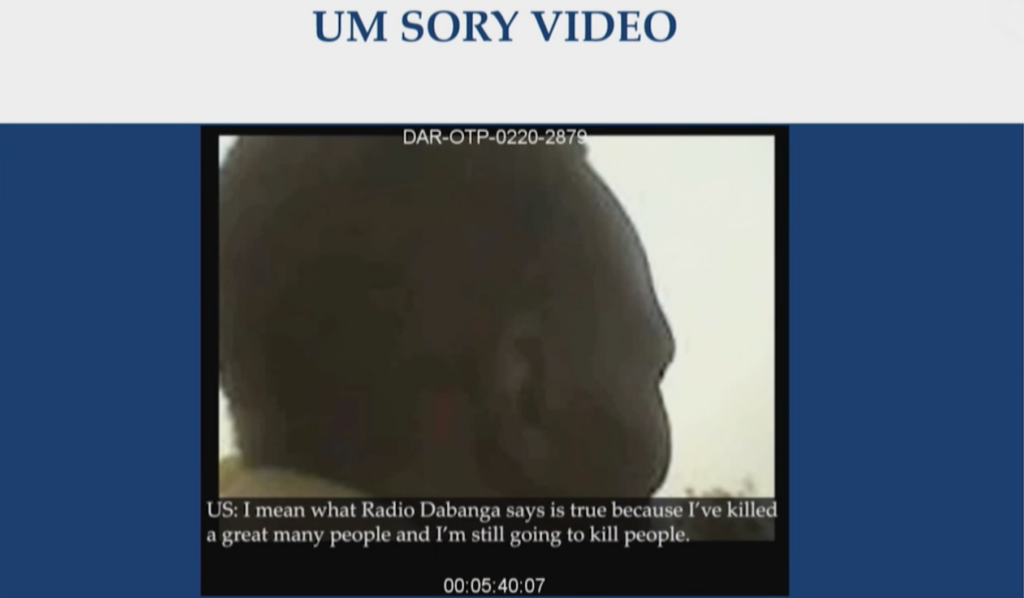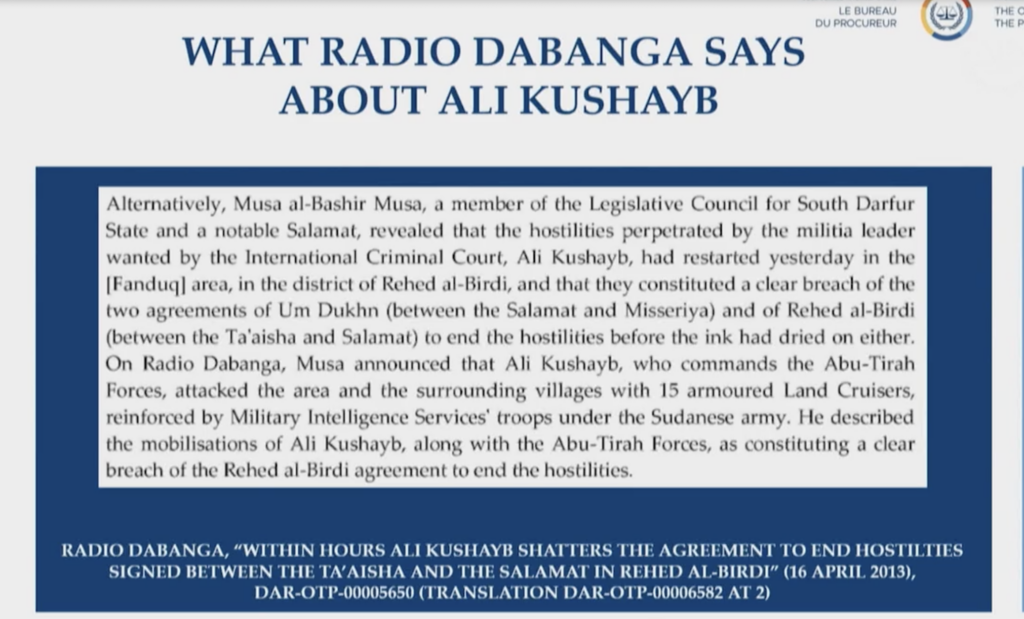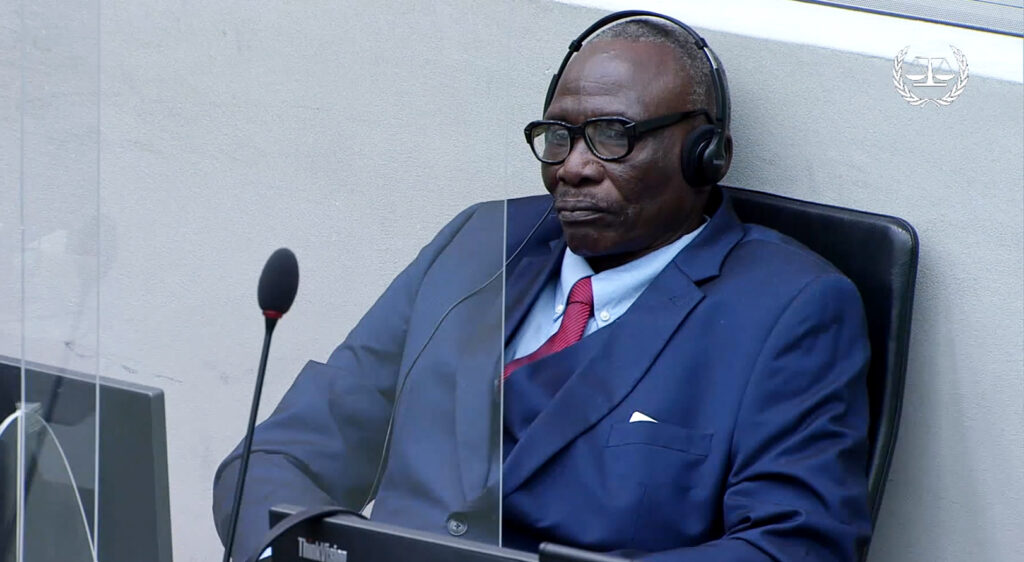‘Ali Kushayb’ trial: ICC closing arguments cite Radio Dabanga evidence

'Ali Kushayb' is seen in a video, allegedly boasting about his actions and endorsing Radio Dabanga’s portrayal of him as a Janjaweed militia leader. This footage is part of the ICC prosecution’s documentary evidence. (Photo: ICC)
The International Criminal Court (ICC) yesterday heard closing arguments in the trial of Darfur Janjaweed leader Ali Muhammad Ali Abdelrahman, known as ‘Ali Kushayb,’ who stands accused of 31 counts of war crimes and crimes against humanity for atrocities committed in Darfur between 2003 and at least 2004. The prosecution drew heavily on evidence linked to Radio Dabanga’s reporting, also including a video in which the accused allegedly confirmed his role in the crimes and endorsed Radio Dabanga’s descriptions of his leadership of the Janjaweed militia.
The court reviewed Radio Dabanga reports detailing Ali Kushayb’s involvement in militia attacks and the systematic targeting of civilians, including his leadership role within the Central Reserve Forces (CRF), commonly known as Abu Tira.
Prosecutor Julian Nicholls emphasised the significance of the CRF, stating: “In this ‘Radio Dabanga’ article, probably from around the same time regarding the conflict with the Salamat, which the accused led and fought in, the articles clearly refer to the head of the CRF, Ali Kushayb.”
According to the Armed Conflict Location & Event Data Project, the CRF “played a pivotal role during former President Omar al-Bashir’s regime, supporting counter-insurgency operations in Darfur and South Kordofan, as well as general security operations.”

Nicholls presented a video of Kushayb in Um-Sory, a locality in Central Darfur’s Umm Dukhun district, where he is seen boasting about his actions and endorsing Radio Dabanga’s portrayal of him as the Janjaweed militia leader. In this video, Kushayb allegedly states: “What Radio Dabanga says about me is true because I’ve killed a great many people, and I’m still going to kill people.”
Nicholls used this footage in closing arguments to underline the damning evidence linking Kushayb to the atrocities and reaffirming his identity as both a militia leader and an ICC-wanted figure.
Nicholls argued that Kushayb’s statements in the video affirm his identity as a militia leader and an ICC-wanted figure, declaring: “He’s saying, ‘I am a militia leader. I’m the person wanted by the ICC.’” He concluded: “Plain, simple, reasonable, sane examination of each video can only lead to the only rational conclusion: the accused, here in the courtroom, is Ali Kushayb.”
Victims’ voices amplified
Prosecutor Karim Khan KC underscored the importance of the trial, saying it represented a crucial moment for justice amid ongoing violence in Sudan. He recounted harrowing witness testimonies of mass killings, rape, and village destruction. “The victims have demanded justice and did everything in their power to participate in this case,” Khan said, emphasising the enduring trauma of those displaced by the violence.
The prosecutor detailed how rape was used as a weapon of war, with survivors facing lifelong stigma. He highlighted the plight of children, who were among the most affected, often forced into displacement camps or perishing during their escape.
Prosecutor Khan described the trial as a “glimmer of hope” for victims who have awaited justice for two decades.
Defence maintains ‘mistaken identity’
Ali Kushayb, who has pleaded not guilty to all charges, continues to argue mistaken identity, with his defence team disputing the prosecution’s evidence.
However, Nicholls dismissed this claim, citing 16 witnesses who recognised Kushayb by name and nickname. He added that the video and corroborating reports leave little doubt about the accused’s identity and actions.
The trial, referred to the ICC by the UN Security Council in 2005, represents the first case of its kind addressing crimes in Darfur.
Closing arguments will conclude on Friday, with a verdict expected to mark a pivotal moment in the pursuit of justice for Darfur’s victims.

To view the segment where ICC prosecutors refer to the video and Radio Dabanga, start at 1:15:00: [ENGLISH] Closing statements in the Abd-Al-Rahman trial – 11 December 2024 – SESSION 1








 and then
and then